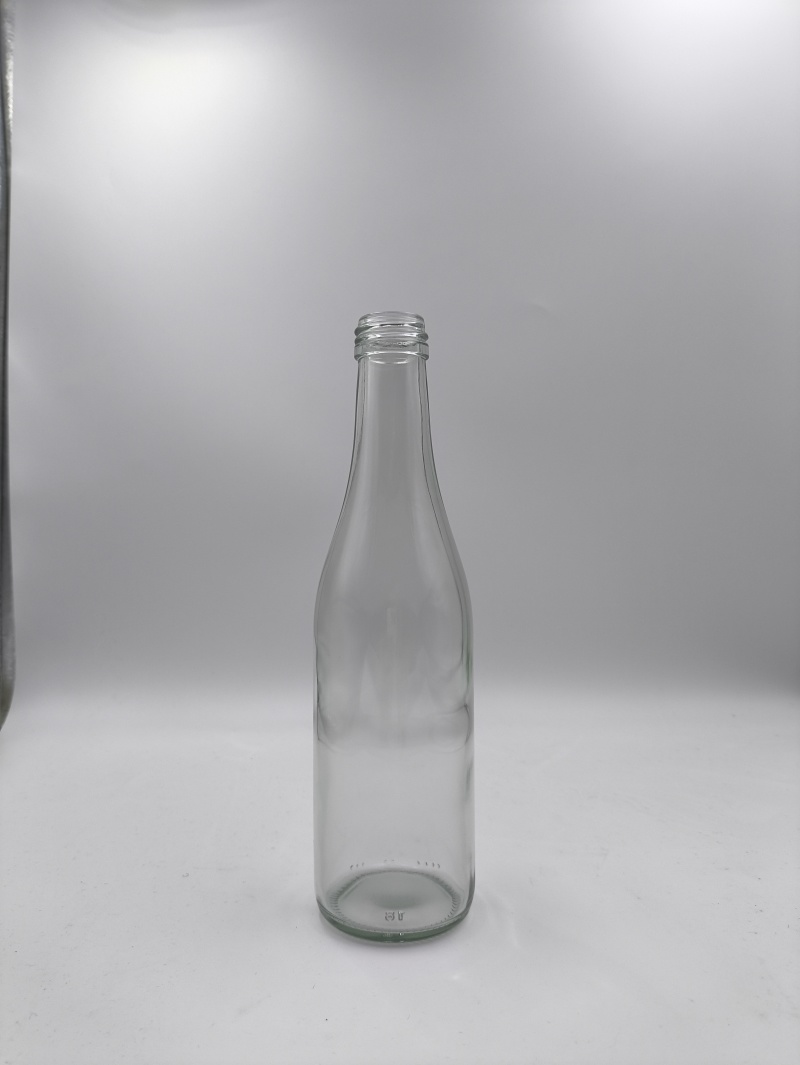What are the advantages and disadvantages of glass bottles compared to bottles made of other materials?
Feb 20,2025

Compared to bottles made from other materials such as plastic, metal, and ceramics, glass bottles have the following advantages and disadvantages:
Advantages
- Good chemical stabilityThe chemical properties of glass are relatively stable, and it is not easy to react chemically with most substances, which can well maintain the chemical properties of the items contained, especially suitable for holding corrosive substances such as acids and bases, as well as various medicines and cosmetics, ensuring product quality and safety.
- Hygienic and non-toxicGlass is a non-porous material that does not adsorb or release harmful substances, nor does it breed bacteria, meeting the hygiene requirements for packaging containers in industries such as food and medicine, and can be safely used to hold drinking water, food, medicines, and other items that are directly ingested.
- High transparencyIt has good transparency, allowing clear observation of the color, shape, and state of the items inside the bottle, making it convenient for consumers to check product quality and remaining quantity. This is very important for products that need to display their contents, such as alcoholic beverages, drinks, perfumes, etc., and helps enhance the product's appeal and sales.
- Strong barrier propertiesIt has good barrier properties against gases and water vapor, effectively preventing the items inside the bottle from getting damp, oxidizing, and evaporating, extending the product's shelf life and maintaining its flavor and quality. For example, when used to hold wine, it can effectively isolate air and prevent the wine from deteriorating.
- Good recyclabilityGlass bottles can be recycled and reused indefinitely. Recycled glass can be processed and remade into glass products, which has high recycling and reuse value, helps save resources, protect the environment, and reduce pressure on the environment.
- Strong aesthetic appealThey can be processed through various techniques such as frosted, engraved, and painted to create bottles with different appearances and artistic value, increasing the product's aesthetic appeal and added value. They are often used for packaging high-end cosmetics, perfumes, and other products, enhancing the product's grade and brand image.
Disadvantages
- FragilityGlass is relatively brittle, with poor impact resistance, and is prone to breakage during transportation, storage, and use, which may not only lead to leakage of the items inside the bottle but also cause personal injury. Additional protective measures, such as using cushioning packaging materials, are needed, which increases packaging and transportation costs.
- Heavier weightCompared to plastic bottles, glass bottles are heavier, which increases transportation costs and the burden on consumers. For products that require large-scale transportation or that consumers need to carry frequently, such as drinking water, heavier glass bottles may cause inconvenience in transportation and use.
- High production energy consumptionThe production of glass requires high-temperature melting of raw materials, which has high energy consumption and relatively high production costs. Additionally, certain pollutants are generated during the production process, putting pressure on the environment. This is a challenge faced by glass bottle production in the context of increasingly strict energy and environmental protection requirements.
- High processing difficultyThe forming and processing of glass require specialized equipment and technology, with high requirements for production processes. Moreover, factors such as the fluidity and cooling speed of glass need to be precisely controlled during processing; otherwise, defects such as bubbles and deformation may occur, affecting product quality.
Contact Us
E-mail :
TomasYan@wzglass.com
Phone/WhatsApp:
+86-0775-6658866
Address:
Min'an Town Daily Ceramic Industrial Park, Beiliu City, Guangxi Province, China

Get in touch
Are you interested in our products or services? Contact us immediately, our experts will provide you with professional services!
*Please leave your specific personal information, and we will have a product consultant contact you later
Address
Min'an Town Daily Ceramic Industrial Park, Beiliu City, Guangxi Province, China






